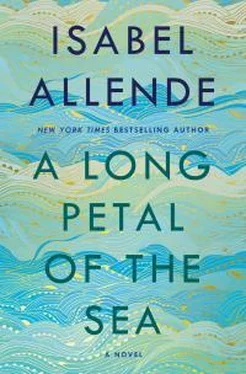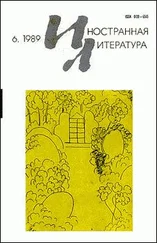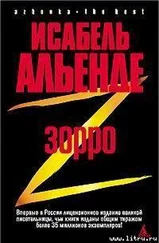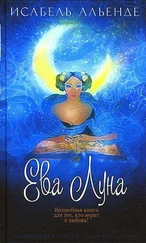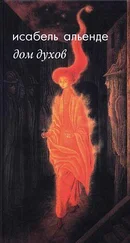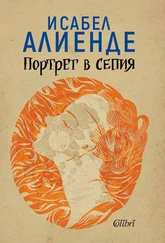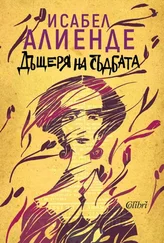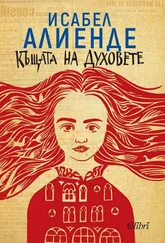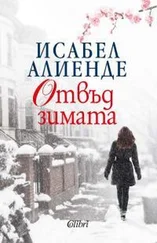“I did what was best for the family. I was always very careful in my choice of adoptive parents. They were all practicing Catholics,” said Urbina.
“You mean Ofelia wasn’t the only one?”
“There were many girls like Ofelia, but none of them as stubborn. Generally, they agreed to let the baby go. What else could they do?”
“In other words, you didn’t have to lie to them to steal the baby.”
“I won’t permit you to insult me, Felipe! They were girls from good families. My duty was to protect them and avoid any scandal.”
“The scandal is that you, shielded by the Church, committed a crime—or rather, many crimes. By law, that should be paid for by a prison sentence. You’re too old now to face the consequences, but I demand you tell me who you gave Ofelia’s daughter to. I’m going to get to the bottom of this.”
Vicente Urbina hadn’t kept a register of the couples who received the babies, or of the children themselves. He took care of the transaction personally: the midwife, Orinda Naranjo, only helped with the delivery, and besides, she had died long ago. At that point Juana Nancucheo butted in to say that according to Doña Laura the baby had been given to a German couple in the south of Chile. Father Urbina had let that slip on one occasion, and Doña Laura had never forgotten it.
“German, you say? They must be from Valdivia,” muttered the bishop.
Their name escaped him, but he was sure the girl had a decent home and didn’t lack for anything; the family was well-off. This comment led Felipe to deduce that in these dealings money changed hands: in other words, the bishop was selling babies. At this, Felipe gave up trying to pry anything more out of him, and decided to concentrate on following the trail of donations the Catholic Church had received through Vicente Urbina around that date. It would be difficult, but not impossible, to gain access to those records; he would have to find the right person to investigate. He guessed that money always left some trace of its passage through the world, and he wasn’t mistaken.
He had to wait eight months until he finally obtained the information. He spent those months in London, pursued from afar by postcards with two-line missives from Juana Nancucheo, littered with grammatical and spelling mistakes, reminding him of his duty. The aged servant struggled to write them without help from anyone, because she had promised to keep the secret until Felipe resolved the mystery. He kept telling her she must be patient, but she couldn’t offer herself that luxury, because she was counting the days that remained to her in this world. Before she left it, she had to find the child and save Doña Laura from purgatory. When Felipe asked her how she could be so sure of the date of her impending death, she simply said she had put a red circle around it on the kitchen calendar. She was installed in Ofelia’s house, with nothing to do for the first time in her life, apart from preparing her own funeral.
One winter day, a letter brought Felipe the details of the donations received by Father Vicente Urbina in 1942. The only one that caught his attention was from Walter and Helga Schnake, the owners of a furniture factory. According to his investigator, they had done very well, and had branches in several southern cities run by their sons and son-in-law. As Urbina had said, theirs was a wealthy family. The time had come to return to Chile and confront Ofelia.
Felipe found his sister mixing paints in her studio, a freezing shed reeking of turpentine and embroidered with cobwebs. She had grown fatter and more ragged, her hair was a dirty white mop, and she was wearing an orthopedic corset for her backache. Ensconced in a corner and wearing an overcoat, gloves, and woolen hat, Juana was the same as ever. “You don’t look as if you’re about to die,” said Felipe by way of greeting, and kissed her on the forehead. He had carefully constructed the most compassionate phrases he could use to tell his sister she had a daughter, but there was no need for any such precautions. She reacted with only vague curiosity, as if it was gossip about someone else. “I assume you want to meet her,” her brother said. She explained he would have to wait awhile, because she was busy painting a mural. Juana said in that case she would go, because she had to see the girl with her own eyes so that she could die in peace. In the end, all three of them went.
Juana Nancucheo saw Ingrid only once. Reassured by that visit, she communicated with Doña Laura as she did every night between two prayers, and explained that her granddaughter had been found, her guilt had been atoned for, and she could arrange her transfer to heaven. Juana herself had twenty-four days left on the calendar. She lay down on her bed surrounded by her bedside saints and photographs of her loved ones—all from the del Solar family—and prepared to die of hunger. From that moment on, she neither ate nor drank, accepting only some ice to moisten her parched mouth. She left this world without fuss or pain a few days before the scheduled day. “She was in a hurry,” said a desolate, orphaned Felipe. He rejected the simple pine coffin Juana had bought and had placed standing in a corner of her bedroom. Instead, he made sure she had a High Mass and was buried in a walnut casket with bronze fittings in the del Solar mausoleum, alongside his parents.
—
ON THE THIRD DAY the storm finally abated. The sun came out, defying the winter, and that morning the poplars guarding Victor Dalmau’s property like sentinels were freshly washed. Snow covered the mountains and reflected the violet color of the clear sky. The two big dogs were able to shake off the lethargy of being in for so long, although the small one, who in dog years was as old as his master, stayed by the fireside.
Ingrid Schnake had spent those days with Victor. She was accustomed to the rain of her southern province, and stayed not so much to ride out the bad weather as to give time to this first encounter, to allow them to get to know each other. She had carefully planned this meeting for months, and had been firm with her husband and children that they were not to accompany her. “You understand I had to do this on my own, don’t you? I found it hard, because it’s the first time I’ve traveled alone, and I didn’t know how you would receive me,” she told Victor. Unlike her experience with her mother, with whom she found it impossible to bridge the gap of more than fifty years’ absence, she and Victor became friends easily. Both of them understood he could never compete with her love for Walter Schnake, her beloved adoptive father, the only one she recognized. “He’s very old, Victor, he’s going to die on me at any moment,” she told him.
They discovered they both played the guitar for consolation, were fans of the same soccer team, read spy novels, and could recite from memory many of Neruda’s verses. She knew the love poems; he the militant ones. That wasn’t all they had in common: they both had a tendency toward melancholy, which he kept at bay by plunging into work, and she with antidepressants and by sheltering in the unshakable haven of her family. Victor lamented the fact that his daughter had been bequeathed this trait, whereas she had inherited neither Ofelia’s artistic temperament nor her cerulean blue eyes.
“When I’m depressed, it’s affection that helps me most,” Ingrid told him. She added that this had never been lacking: she was her parents’ favorite, was spoiled by her younger siblings, and was married to a honey-colored bear of a man who could lift her up with one arm and who gave her the quiet love of a big dog. In his turn, Victor told her that Roser’s love had always helped him keep at bay that sly melancholy that pursued him like an enemy and sometimes threatened to crush him with its weight of bad memories. With Roser gone, he was lost. His inner fire had gone out; all that was left were the ashes of a grief he had been dragging round with him for three years now. He surprised himself with his hoarse confession: he had never before spoken of that cold hollow in his chest, not even to Marcel.
Читать дальше
